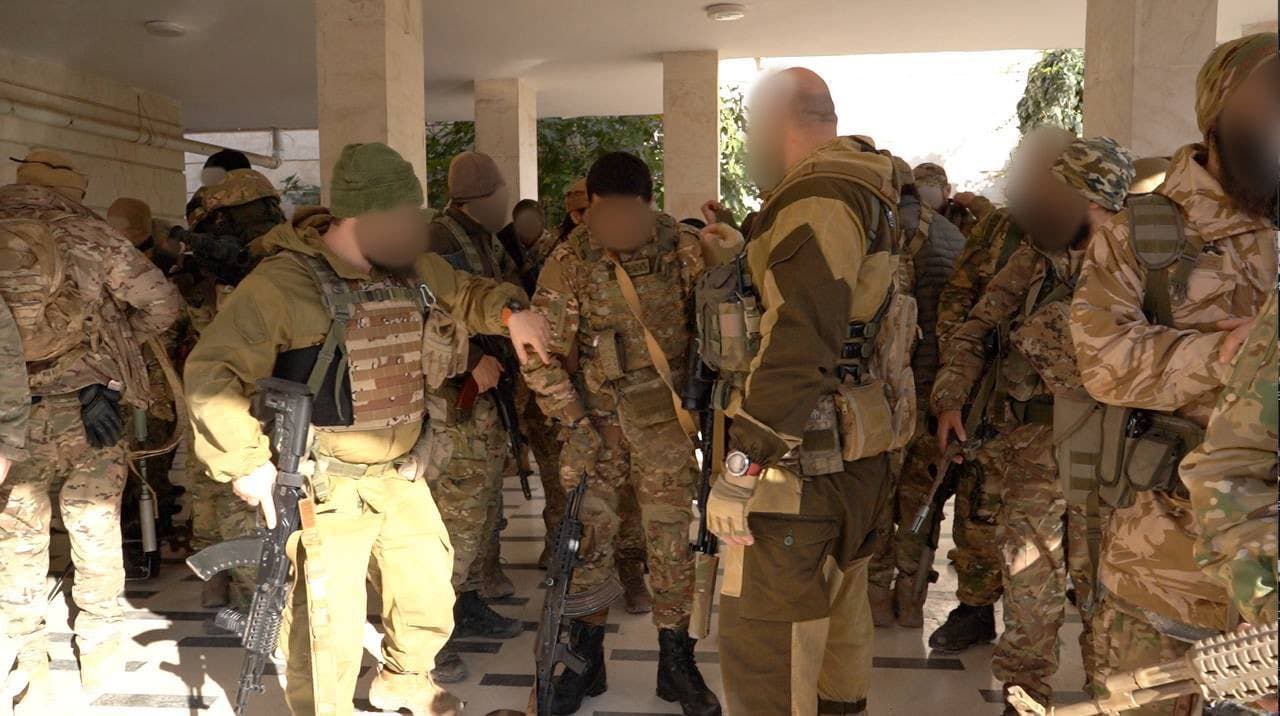
Table Of Contents
-
U.S. Government Addresses Possibility Of Increased Terrorist Threat During Pandemic
-
International Authorities Warn About Security Issues
-
Weaponizing The Coronavirus – A Growing Possibility
-
Themes In The Jihadi Discourse On The Coronavirus Pandemic, And Platforms Being Used
-
About This Report
II: Jihadis' Approaches To The Pandemic
-
The Coronavirus Is A Soldier Of Allah – For Punishing His Enemies And The Enemies Of The Muslims
-
The Coronavirus Benefits The Muslims
-
The Coronavirus Is A Message And An Opportunity For Muslims To Repent
-
The Coronavirus Is A Call For The World To Embrace Islam And Shows The West That It Should Imitate The Muslims It Once Ridiculed
-
The Coronavirus Is Revitalizing The Virtual Caliphate, Prompting A Resurgence Of Online Jihadi Activity
-
The Coronavirus Is A Cause For Celebration And Gloating
III: Jihadi Groups Deal With The Pandemic
-
ISIS:Official Statements Via Its Al-Naba' Weekly And By Official Spokesman, Upsurge In Attacks In Iraq And Africa, Arrests In Indonesia; Supporters Form New Media Organizations, Step Up Online Activity, Including Incitement
-
Al-Qaeda Central: Urges Non-Muslims To Embrace Islam; Leader Al-Zawahiri Neglects To Mention Pandemic In Video
-
Al-Qaeda Syria Affiliate Hay'at Tahrir Al-Sham (HTS): Taking Preventive Measures On The Ground
-
Al-Qaeda Somalia Affiliate Al-Shabab Al-Mujahideen: Publishing News On Coronavirus In Africa, Speeches By Al-Shabab Leaders
-
The Taliban: Assuring Cooperation With International Community, Enforcing Social Distancing And Closing Afghanistan-Iran Border
-
South Asia Jihadi Movements: Jihadi Magazine Calls It "Punishment Sent By Allah," Islamist Gatherings Held In Delhi In Defiance Of Government Regulations Identified As Coronavirus Vector
-
Hizbullah: Secretary-General Nasrallah Rumored To Be Infected, Hizbullah Sending Troops To Fight Disease In Iran
-
Shi'ite Militias In Iraq: U.S., West Created The Virus; We Are "Fully Ready To Crush All U.S. Bases Of Evil" That Are Fertile Ground For The Coronavirus; PMU Conducts "Curbing The Pandemic" Campaign
-
Ansar Allah (Houthis) In Yemen: Blaming The U.S. – Which Sends "Contaminated" Humanitarian Aid; Taxing Aid Organizations
-
Hamas: Operating Quarantine Centers, Arresting Peace Activists, Threatening Israel While Seeking Prisoner Exchange Deal With It
IV: Leveraging The Pandemic As A Form Of Jihad
-
Jihadis Leverage Pandemic As New Rallying Point For Energizing Global Jihad
-
As Authorities Lose Control, Threats, Attacks, And Prison Breaks Spike
-
Jihadis Use Mosque Closures In Muslim Countries To Incite Jihad
-
Possible Use Of Virus As A Weapon: Sneeze, Cough, And Spit On The Enemy
V: The Pandemic's Impact On Jihadis' Operational Capabilities
-
Keeping The Disease From Spreading Within Jihadi Ranks – And Across Borders
-
Jihadi Health Concerns And Measures
Appendix I: Other Discussion In Al-Hol Camp On The Coronavirus
Appendix II: Infographic: Jihadi Sheikhs And Clerics On The Coronavirus
FOREWORD BY AMB. ALBERTO M. FERNANDEZ, MEMRI Vice President, Former President of the Middle East Broadcasting Networks (MBN), and Former State Department's Coordinator for the Center for Strategic Counterterrorism Communications
The weaponization of disease has an ancient and fateful history. Plagues and epidemics have devastated armies and weakened empires. In the 14th century, Mongol armies besieging Genoese possessions on the Black Sea catapulted corpses of bubonic plague victims into enemy strongholds. Genoese ships spread the disease to Constantinople and from there to Europe. Tens of millions would die, perhaps as many as 200 million died. In Cairo, the Black Death killed a third of the population.
Despite this history, and despite even more recent events such as the Spanish Influenza pandemic of a century ago, and more recent outbreaks of SARS and MERS some years ago, the world staggers today before the economic, political, and social cost of the coronavirus pandemic. And just as states adapt and seek to confront the obvious health aspects of this crisis, they must confront the national security dimensions of the pandemic.
Not surprisingly, states adjust, and non-state actors such as jihadi organizations also adjust and seek to take full advantage of this latest development. In one way, the coronavirus plague has hurt jihadi groups like ISIS and Al-Qaeda. An early response by governments to the pandemic was to close borders, suspend air travel, and generally make movement of populations more difficult and more closely supervised. Surveillance for health reasons is in the end not that different from surveillance for national security reasons.
But in the long term, the pandemic may be of great and decisive benefit to the global jihad. These groups have made, and will continue to make, short-term tactical decisions to use this crisis to their benefit, as is richly documented in this extensive report – although some of these measures are marginal or silly, adventitious efforts to benefit here and there from Western distraction or confusion.

In my view, the biggest benefit to jihadi groups from this pandemic lies not in the possibility of an attack here or there, or bioterror of some sort striking a blow. And it is not solely the possibility of the exhaustion or vulnerability of Western counterterrorism. The danger is more existential. The pandemic is weakening the internal moorings of societies worldwide, hollowing out economies and the governments that depend on them, sowing despair and confusion and existential dread. The pandemic is like social media – an accelerant – which makes existing destructive trends more volatile and lethal. The weaknesses of economies are made weaker. The unhappiness and distrust of groaning masses in the Middle East (and elsewhere) is further deepened. This is a process of making troubled ground more fertile for revolution – and Salafi-jihadi groups are, ultimately, revolutionary groups first and foremost. These are groups that sell both radical change and a long-promised and longed-for utopia embedded in a powerful religious discourse. The pandemic's health and economic consequences will chip away at the ability of states to respond to challenges. It will increase debt, poverty and discord among populations who already have many reasons to be dissatisfied with the status quo.
And in a bitter reversal, even states that may have done a relatively good job in dealing with public health aspects of the coronavirus, say Jordan, for example, will still pay a heavy economic price as a result of the pandemic's effects elsewhere. In other countries that have done less well, such as Egypt or Iraq, the effects of the pandemic only add greater weight to an already substantial misery index.
It is my hope that the Middle East Media Research Institute's important historical review of the coronavirus pandemic's impact on global jihad will encourage us to look more deeply at both short-term vulnerabilities and the long-term threat arising from this unique combination of health emergency, economic collapse, and the siren song of chiliastic revolution. This report should be read by relevant government officials of every stripe, and by academia, in the U.S. and abroad. And I would like to extend my congratulations to the MEMRI JTTM and CJL teams, whose 24/7 monitoring contributed so much to it.

*Ambassador (ret.) Alberto M. Fernandez is, in addition to MEMRI Vice President, former president of the Middle East Broadcasting Networks (MBN) and former State Department Coordinator for the Center for Strategic Counterterrorism Communications
The full text of this post is available to subscribers.
Please login or register to request subscription information from MEMRI








